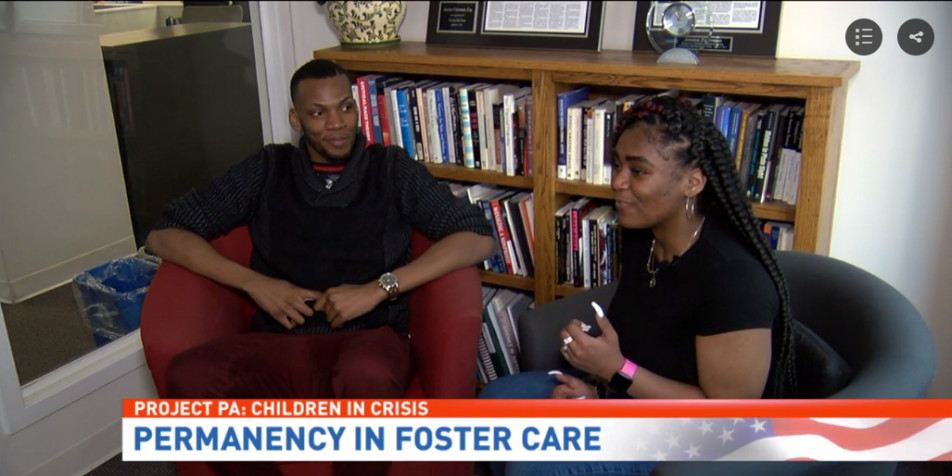Youth Fostering Change: “Youth want permanent families—and need professionals’ help to achieve this!”

Across the country, over 20,000 youth age out of care each year without permanent family; within 18 months of aging out, 40-50% of former foster youth become homeless. In Pennsylvania, almost half (49%) of youth ages 14-21 who are in foster care age out of the system without being reunified or connected to a permanent family. This means thousands of young people are leaving the state’s care without adequate support, a loving family, or the resources and people necessary for them to grow into thriving adults.
As youth with experience in the child welfare system, members of Youth Fostering Change are familiar with the real-life consequences older youth face when permanency planning fails. Today, Youth Fostering Change released Tools for Success: A Toolkit for Child Welfare Professionals to Achieve Permanency and Stability for Youth in Foster Care, a publication for their 2017-2018 advocacy project.
The toolkit is for social workers, advocates, case workers, and other professionals to support youth in care to achieve permanency. It includes the definition and legal obligations for permanency planning, as well as tools and best practices for professionals who work with youth on permanency planning.
Youth advocates developed these materials based on their experiences in care and with aging out of the system. Many youth advocates already aged out without family or supportive connections. Others are about to leave the system without gaining permanency and feel uncertain about life after foster care.
How Youth Fostering Change Defines Permanency:
Permanency and the process to achieve permanency should actively include youth, recognize adolescent development, and include best practices for every youth’s plan. We define permanency as having supportive adult connections, not just a place to live. Permanency provides youth a series of relationships that:
- Provide the same support that family members would provide,
- Provide emotional support and guidance,
- Provide unconditional love,
- Help youth build and learn skills,
- Encourage skills, talents, and potential for the future, and
- Provide a home and help youth with resources, like help to make ends
Youth Fostering Change’s 7 Recommendations for Effective Permanency Planning:
- Communicate the Importance of Permanency
- Meaningfully Engage Youth in Their Permanency Planning
- Facilitate Placement Stability
- Cultivate Youth’s Connections with Kin
- Focus on Relational Permanency and Legal Permanency
- Follow the Family Finding Requirements
- Ensure a Comprehensive Transition Plan Is in Place, Including Direct Connections to Services and Resources
Download and read the toolkit to learn more about youth advocates’ recommendations and tools to help professionals working with older youth in permanency planning.
Youth Fostering Change (YFC) is an advocacy program for youth who are currently or formerly involved in the child welfare system. Each year, youth advocates research issues affecting youth in foster care and analyze current advocacy strategies. Youth advocates then determine a strategy to address the issue, including developing policy recommendations and a campaign to raise awareness of the issue and YFC’s work.